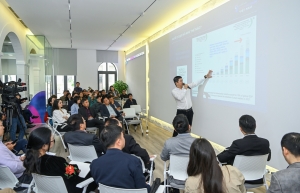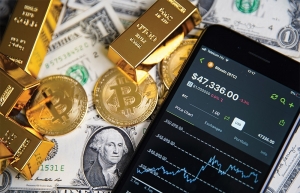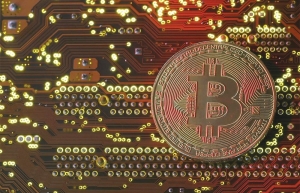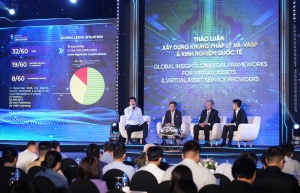Binance chief's prison sentence a lesson on legal compliance
Binance has been accused of failing to report over 100,000 suspicious transactions, which are believed to be linked to terrorist groups such as Hamas and IS, as well as receiving digital funds from illegal activities such as ransomware attacks and the trade of paedophile content.
Zhao's four-month prison sentence has prompted other countries and governments to reevaluate the operations of Binance and similar businesses within their own jurisdictions.
 |
Phan Duc Trung, vice chairman of the Vietnam Blockchain Association (VBA), said, "Virtual assets do not have specific legal frameworks in Vietnam and some related activities are partially regulated by other laws that define assets to include objects, money, valuable papers, and property rights."
The Ministry of Justice has also repeatedly stated that virtual assets can be considered a type of property, specifically derivative rights stemming from the intellectual property rights of the copyright owner of the programme created by blockchain technology.
In 2018, the State Bank of Vietnam issued Circular No.02/CT-NHNN instructing the payment service supply system to, "prevent and combat the abuse of the banking system and payment system for the purpose of buying, selling, exchanging virtual currencies or using virtual currencies as a means of payment."
According to Trung, "Building a legal framework for virtual assets and virtual asset service providers can be approached using four criteria set forth by the Atlantic Council, including taxation, anti-money laundering and counter financing of terrorism, user protection, and standards covering virtual asset service providers."
Out of the 60 countries surveyed by the Atlantic Council, 32 have a legal policy regarding virtual assets, 19 partially prohibit them, and eight completely prohibit them.
"While waiting for the legal framework from the Vietnamese government, some foreign-based virtual asset service providers with customers in Vietnam may begin researching and complying with laws, including regulations on anti-money laundering, counter-financing of terrorism, and taxes," said Trung.
"These are the fundamental requirements that individuals and businesses operating in this field need to strictly adhere to protect themselves and contribute to the healthy development of the blockchain industry in this country," he added.
As of May 2024, the Vietnam Blockchain Association has organised four workshops and discussions to gather feedback and input for the development of the legal framework governing virtual assets and virtual asset service providers. These events have seen the participation of over 4,000 individuals, with the aim of promoting community engagement in building a healthy environment and fostering sustainable development in the blockchain technology industry.
Since May 2023, the Vietnam Blockchain Association has announced and actively promoted the ChainTracer programme, aimed at identifying and alerting to projects with fraudulent signs and supporting the community in complying with current legal regulations regarding virtual assets and virtual asset service providers.
In accordance with the commitment of the Vietnamese government to anti-money laundering, counter-terrorism financing, and the proliferation of weapons of mass destruction issued under Decision No.194/QD-TTg in February 2024, by May 2025, a legal framework on virtual assets will be issued to regulate or ban this new type of asset.
What the stars mean:
★ Poor ★ ★ Promising ★★★ Good ★★★★ Very good ★★★★★ Exceptional
Related Contents
Latest News
More News
- Cashless payments hit 28 times GDP in 2025 (February 04, 2026 | 18:09)
- SSIAM and DBJ launch Japan Vietnam Capital Fund (February 04, 2026 | 15:57)
- Banks target stronger profits, credit growth in 2026 (February 04, 2026 | 15:43)
- Vietnam on path to investment-grade rating (February 03, 2026 | 13:07)
- Consumer finance sector posts sharp profit growth (February 03, 2026 | 13:05)
- Insurance market building the next chapter of protection (February 02, 2026 | 11:16)
- NAB Innovation Centre underscores Vietnam’s appeal for tech investment (January 30, 2026 | 11:16)
- Vietnam strengthens public debt management with World Bank and IMF (January 30, 2026 | 11:00)
- Corporate bond market poised for stronger growth cycle (January 28, 2026 | 17:13)
- Vietnam's IPO market on recovery trajectory (January 28, 2026 | 17:04)







 Tag:
Tag:




















 Mobile Version
Mobile Version